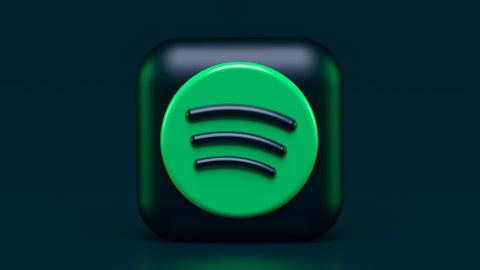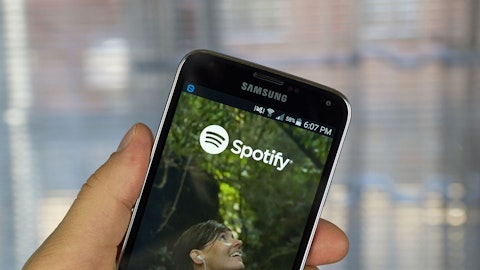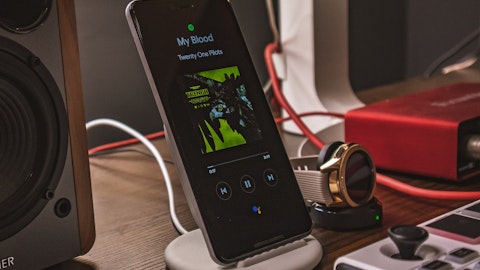And as a result, now we have 5 million creators on Spotify, so a massive increase in the number of people who are creating podcasts, you being one of them. And this is true across the world, really at this point. So, net, net, I think we went from being almost nowhere four years ago to now being the leader in many markets around the world in this space. And that adds several benefits to Spotify. It adds the benefit that it makes our business more defensible because now it is meaningfully contributing to our advertising story. It is also so that from a competitive lens, when we’ve added this content, what we’re seeing is that consumers are not just consuming music on the platform, but they’re consuming music and podcast to a great extent. And the number of users on our platform that are consuming, podcast keeps growing as well.
And as that’s happening, their retention increases. And as that happening, it is impacting our business. Now what you’re probably asking underneath all of that is that it’s been a drag on the gross margin side. So, what does that mean future? Well, we’ve been making many investments. Some of them have been working greatly, and you should expect us to double down on those. And some of them, not surprisingly, haven’t worked out. And there are certain shows that work really, really well for us, and there shows that didn’t perform as we expected. And I think that’s a sign of maturity that you go for the growth first and then you seek the efficiency. But generally, what you should expect us is across the board now to be focused more on that efficiency and creating more leverage and that’s certainly true in podcasting too.
And the management changes really had nothing to do with the change of strategy in podcasting. It’s more around increasing the speed of decision-making and increasing the focus on efficiency across the board because the next era of Spotify is one where we’re adding speed plus efficiency, not just focused on speed or growth at all costs. And that is a big shift, but it is also what we said during the Investor Day in June. And now we’re going to have to live up to that. And I know some investors don’t believe that we’re serious about it, but hopefully, my remarks today shows that we are really, really focused on driving efficiency going forward.
Bryan Goldberg: Another question from Benjamin Black on pricing. Last quarter, you alluded to a potential win-win with respect to the conversations you’re having with the labels around price increases. What are some of the concessions you’re looking for from the labels?
Daniel Ek: Yes. I can’t comment on sort of individual negotiations with our rights partners. But as I mentioned before, we’re thinking obviously how we can grow our business the best possible way. Sometimes that is keeping the price low and grow the number of users on the platform. Sometimes it is increasing the revenue per user. Sometimes it is increasing our margin per user and sometimes it’s all of the above. The important part is what’s pretty amazing with our Spotify story is that this is something that creates win-wins with our label partners too. They — if Spotify does well in the market, it generally increases the revenues for the labels as well. And we’ve seen that time and time again that this close partnership generates material benefits for both companies over time. And that’s what we will expect going forward, too, as we’re driving more benefits for all of our creative partners and Spotify.
Bryan Goldberg: All right. We’ve got another question from Doug Anmuth on marketing. How are you thinking about sales and marketing spend for 2023 following the ramp in spend over the past two years?



